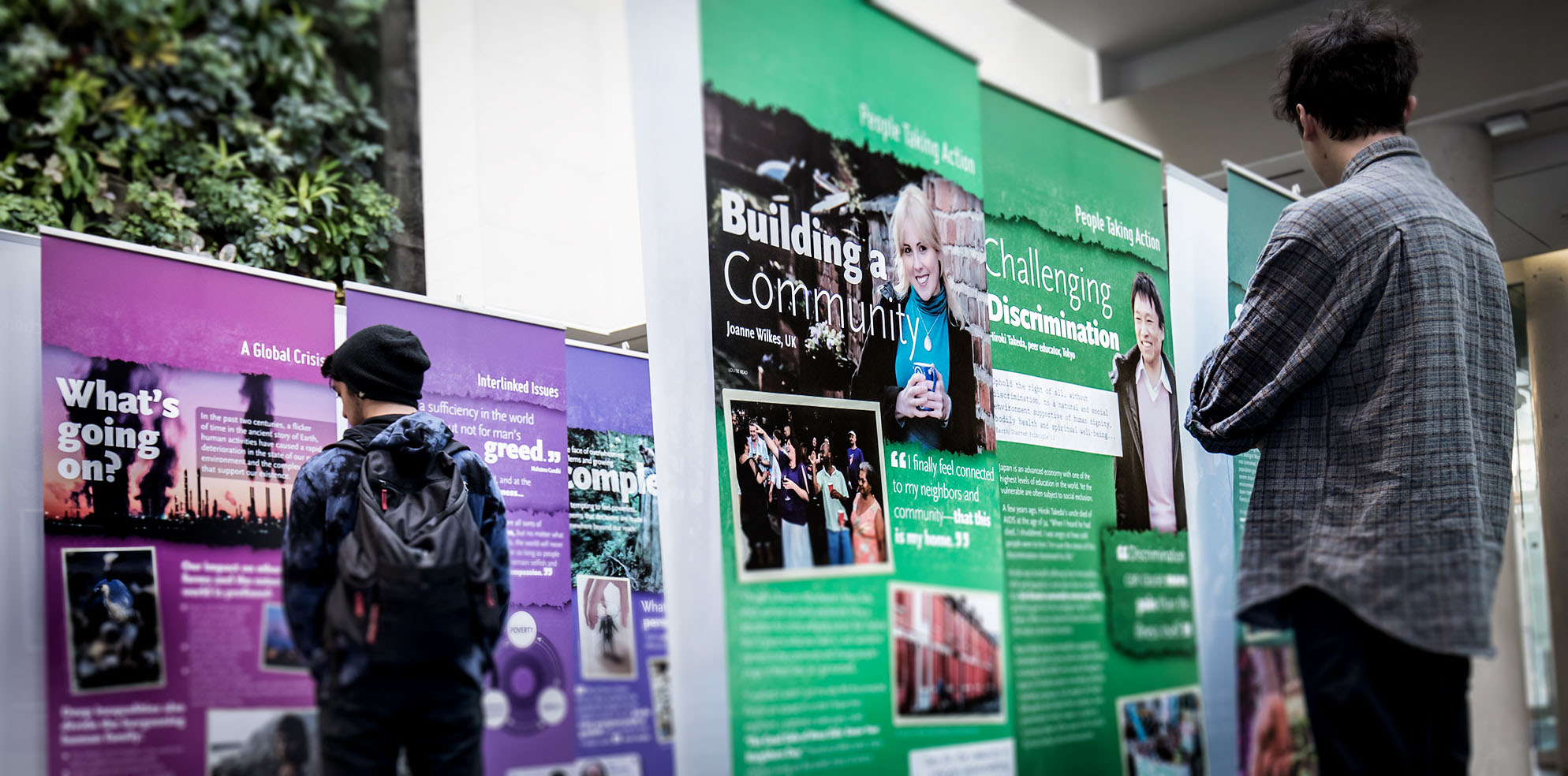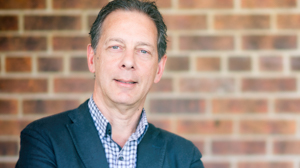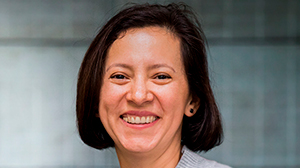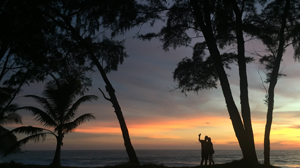- Future Students
- Current Students
- Faculty
- Staff
- Alumni
- Others
Seeds of Hope exhibit plants ideas of global citizenship

The main intent behind Seeds of Hope, an exhibit recently displayed in the University of Guelph-Humber’s atrium that showcases sustainable initiatives across the globe, was to highlight how ordinary people can orchestrate a wave of positive change, explained Family & Community Social Services (FCSS) Program Head Dr. Paul Sherman.
The exhibit also focused on the interconnectedness of humans and the idea of global citizenship as a powerful tool to benefit all humankind.
The display is a joint initiative between Soka Gakkai International (SGI) and Earth Charter International. It includes 24 panels, each depicting a theme tied to the environment, social justice and peace. One panel with an outline of a tree was left blank for audience members to describe how they plan to advance the cause of sustainability.
“My idea for bringing the exhibit was to plant a seed in the minds of people who viewed it,” Dr. Sherman said. “I wanted to bring awareness on how important sustainability is to the survival of our planet. I hoped to motivate the students into taking responsibility and adopting a global citizen mindset.”
The exhibit was brought to the university as a project of Dr. Sherman’s course on Global Citizenship. Comments from students in the course seemed to echo Dr. Sherman’s intent for displaying the exhibit, as one student remarked, “I was struck by the first panel statement, 'It starts with one.' Perhaps this display will start people on their path to being a global citizen. Hopefully, people walked away from the display with a little more knowledge, inspiration, and empowerment."
Soka Gakkai International is a community-based Buddhist organization that promotes peace, culture and education with members in 192 countries and territories, while the mandate of Earth Charter International is to promote and participate in sustainable initiatives around the world.
Since its debut in 2002, the travelling exhibit has been shown in 34 countries around the world.
“Seeds of Hope shows you sometimes, all you need is one individual to create something that will bring about a big impact,” Dr. Sherman said. “So, even if one person of all the people who visited the exhibit becomes aware of global issues and takes some kind of personal responsibility, I will be happy.”
The panels introduced viewers to eight global citizens from Africa to the Arctic and Eastern Europe, all of whom initially took a small step in addressing a specific problem; whether it was harvesting rain water in a village in India or empowering youth to undertake projects such as bridge-building and cleaning of ecological reserves in Costa Rica. In the end, they all ended up creating a ripple effect.
One of the stories introduced the viewers to Wangari Maathai, a biologist from Kenya. When Maathai realized the forest cover in Kenya had declined rapidly and only two per cent of the original vegetation was left, she took action and launched a grassroots movement in the ‘70s. Through her initiative, she encouraged women in the rural areas to plant trees. As of 2010, the Green Belt Movement, which Maathai founded, had planted more than 45 million trees in Kenya and nearby areas.
Early this year, the Soka Education Research Initiative on Global Citizenship (SERI-GC), a five-year research project, was launched at UofGH. The collaboration will allow students and faculty to study the philosophy and practices of Soka education and its connection to global citizenship.







